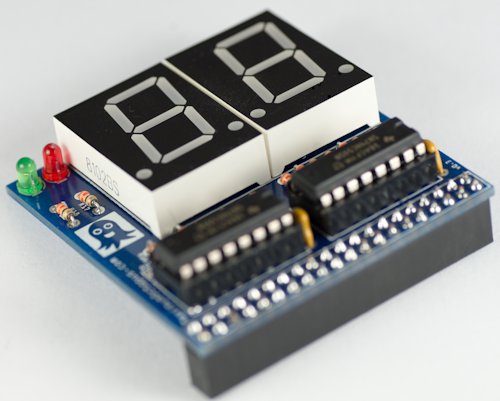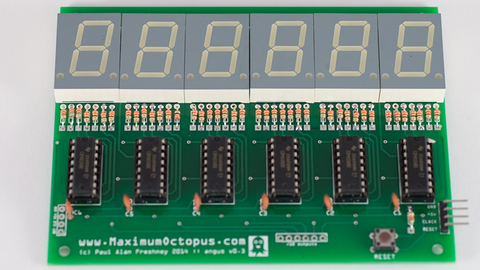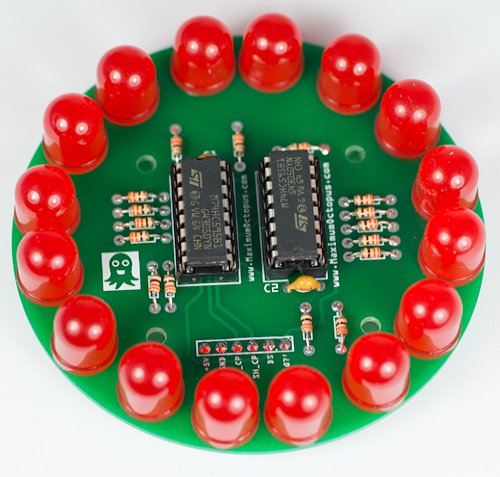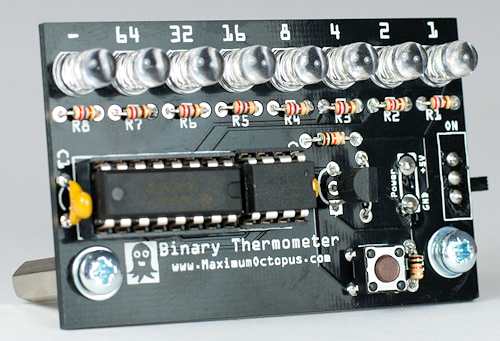Although he has always been interested in electronics, Paul only started working with microcontrollers in 2009 and has been making kits for about a year. “I bought a PICAXE development kit and that was a real revelation. It started a microcontroller mania which is still going strong today. I currently have 11 development boards on my desk!"
“I enjoy the process of developing a kit, the combination of electronics design and software development is like magic. I still remember my first ever project: a single flashing LED, simple and probably the thing that most people start out with – but it's still awesome!” Paul's kits are designed to be easy to build and program, and he offers free build instructions and source code for each project, giving people the opportunity to make the kits independently even if they do not buy them from Paul's website. Among Paul's products are LED-based kits that can be driven by a range of microcontrollers such as Arduino, Espruino, PICAXE, PIC and Raspberry Pi, providing a variety of usages for decorative and functional projects. His breakout board kits are ideal for prototyping shift register based projects, real time clocks, debugging, indication and 555 timing.
Rapid is key to Paul's products. He buys resistors, ICs, capacitors, sockets, connectors, switches and other components. “There isn't a supplier that can offer me the selection and prices available at Rapid. None of my kits require anything that you can't supply. In fact, if Rapid couldn't supply it I would think twice about including it in a kit.”
www.maximumoctopus.com




